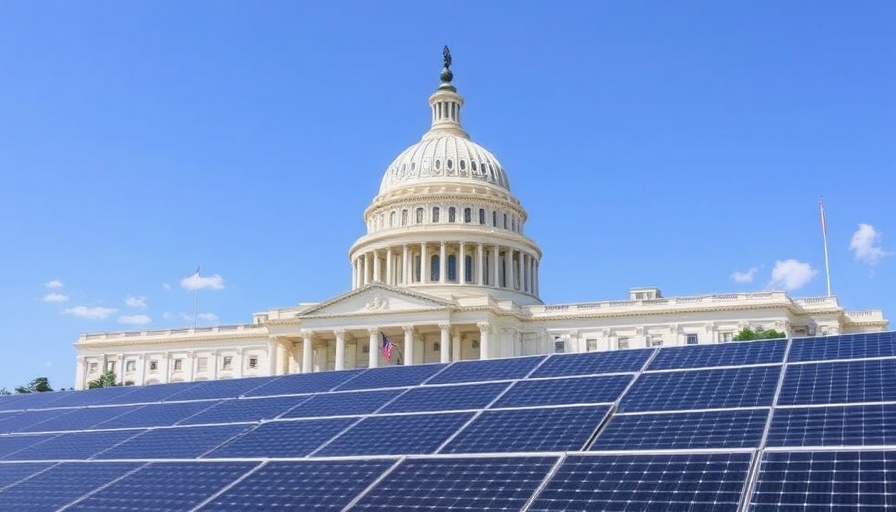
Senate Proposes a Timeline for Solar Tax Credit Expiration
The Senate has recently put forth a proposal to end the solar tax credit, a decision that could affect millions of homeowners and businesses across the country. With the growing emphasis on sustainability and eco-friendly solutions, this proposed timeline raises questions about the future of solar energy in America.
The Solar Tax Credit: What Is It?
The solar tax credit, officially known as the Investment Tax Credit (ITC), allows homeowners and businesses to deduct a significant percentage of the costs of installing a solar energy system from their federal taxes. This financial incentive has been crucial in encouraging the adoption of solar technology, ultimately helping to reduce carbon footprints and promote renewable energy.
Current Proposal Details
The new proposal aims to phase out the solar tax credit over a period of five years, reducing the percentage of eligible expenses. This move has sparked a spirited debate among stakeholders, particularly among eco-conscious consumers and business owners who prioritize sustainability. With energy costs on the rise, many worry that this change could discourage investment in solar technology and weaken the push toward greener energy solutions.
Impact on Homeowners and Businesses
Homeowners aged 30-65, who are often looking for ways to cut energy costs and improve their home's value, will feel the impact of this proposal the most. Installing solar panels not only lowers monthly electricity bills but also increases property resale value. With the potential tax credit's expiration, many may reconsider their plans to invest in solar energy systems. Furthermore, businesses aiming to create sustainable models may find the financial incentive critical for their operations.
What Experts Are Saying
Experts in energy policy warn that ending the tax credit could result in increased reliance on fossil fuels as a primary energy source. A report conducted by the Solar Energy Industries Association (SEIA) indicates that the solar industry has created over 250,000 jobs in the past decade, primarily fueled by tax incentives like the ITC. Losing this financial support could lead to significant job losses, further harming the economy.
Counterarguments and Diverse Perspectives
Supporters of the proposal argue that the solar market has matured and can thrive without government subsidies. They believe that the tax credit has served its purpose in promoting initial adoption, and the industry should now focus on competitive pricing and self-sustainability. However, opponents raise concerns that without the ongoing support of tax credits, solar energy may not be accessible to low and middle-income families who desperately want sustainable solutions but lack the capital to invest upfront.
Future Predictions: What Lies Ahead for Solar Energy?
As the Senate prepares to discuss the proposal further, many industry insiders are left wondering how they can advocate for the continuation of the solar tax credit. The durability of solar technology is projected to increase over the coming years, but funding is crucial for the industry’s expansion. The continuation of incentives may lead to a more robust energy market and green job growth, while its removal could negate much of the progress made in recent years.
Actionable Insights for Homeowners and Eco-Conscious Consumers
For homeowners and business owners invested in solar energy, staying informed about the developments regarding the solar tax credit is essential. Monitoring legislative actions and engaging with local advocacy groups can ensure your voice is heard in the discussions impacting the solar market. Delaying solar installation until the political climate stabilizes could be a prudent approach, as uncertainty continues to loom over tax incentives.
Call to Action: Advocate for Solar Sustainability
As energy consumers, it’s our responsibility to advocate for renewable energy policies that benefit our environment and communities. Whether through contacting local representatives or participating in awareness campaigns, your voice can contribute to preserving incentives that promote sustainable energy practices.
 Add Row
Add Row  Add
Add 



Write A Comment